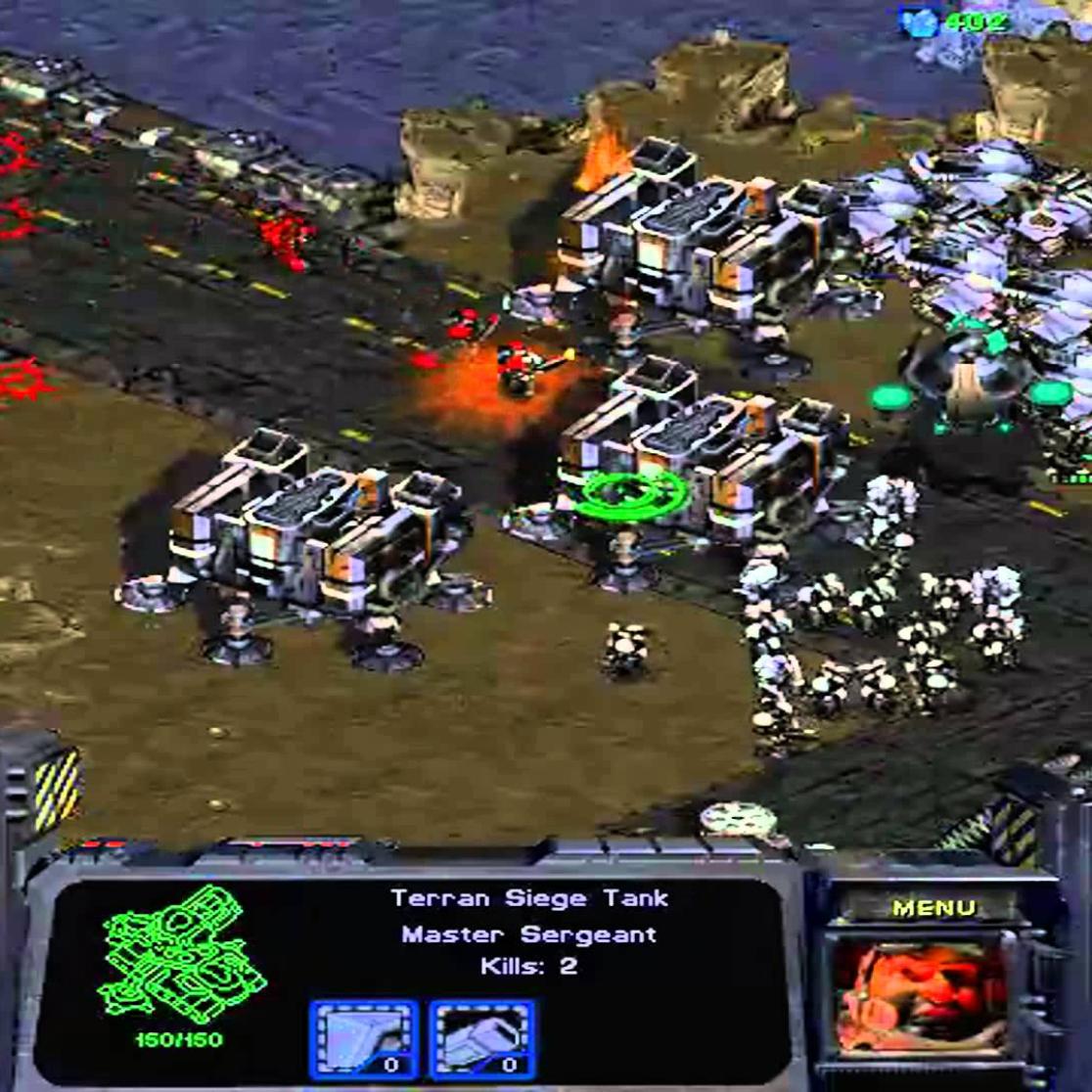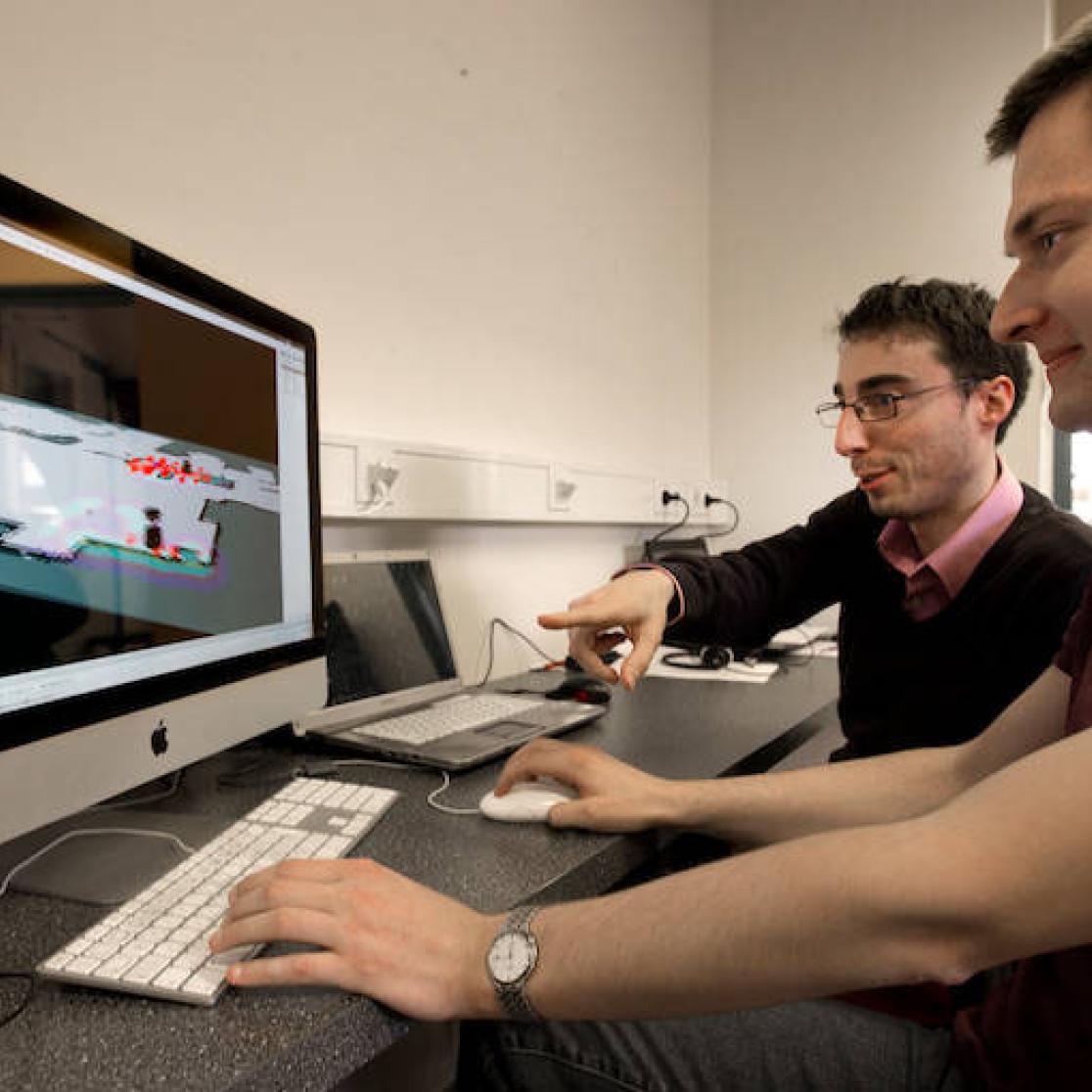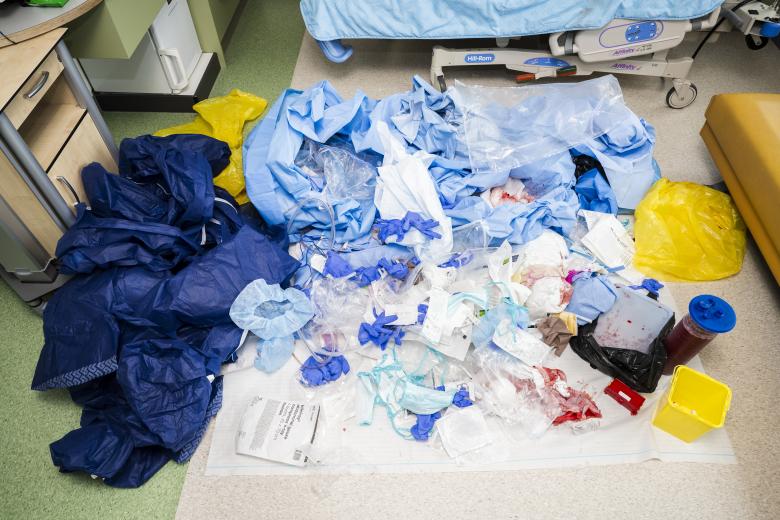DKE student wins Student StarCraft AI Tournament
Martin Rooijackers (Master student Artificial Intelligence at the Department of Data Science and Knowledge Engineering – Maastricht University) and his LetaBot took part in the annual Student StarCraft AI Tournament and won in both the student-division as well as the mixed division!
Student StarCraft AI Tournament (SSCAIT) is an educational event. It was established by the Czech Technical University in 2011. It serves as a challenging competitive environment mainly for students of Artificial Intelligence and Computer Science. Student developers can submit the bots they programmed and compete against each other.
The 2016-2017 edition of SSCAIT sported 45 participants. The tournament was divided into two divisions:
The first one was the student division, which was a round-robin tournament of 1980 games, where everybody played two games against everybody else. (A round-robin tournament is a competition in which each contestant meets all other contestants in turn). Only individual students were eligible for the title in this round.
The second one was the mixed division, which was a knock-out tournament of the 16 best performing bots (including non-students and teams).
Free for All game with Martin Rooijackers's LetaBot, Krasi0 and Bereaver
Artificial Intelligence
Artificial intelligence has a high impact on society. It plays a key role in some of the technological applications that have become indispensible to us. These applications include data mining (e.g. detection of fraudulent credit card transactions), automated trading software in real markets, interactive computer games, intelligent network routing on the internet, robotic space exploration, sensor networks for medical applications and many more. This master’s programme teaches you to become an artificial intelligence expert who is capable of dealing with both current and future challenges in this highly challenging field.
Since the recent victories of Machine against Man in Poker and Go, Starcraft has become the next target for (game) AI. Tech companies such as Google Deepmind will be using the game as an AI research environment.
Google Deepmind regards StarCraft as “an interesting testing environment for current AI research because it provides a useful bridge to the messiness of the real-world. The skills required for an agent to progress through the environment and play StarCraft well could ultimately transfer to real-world tasks.”
StarCraft Brood War
StarCraft is a real-time strategy videogame where the players harvest resources and spend them on three aspects: buildings, units, and research. A player is eliminated when their buildings are destroyed. Everyone starts the game with one building and a limited number of harvesting and constructing units. The game is about creating an economic or strategic advantage over your opponent so that your units can overpower your opponent's units, giving you the opportunity to beat your opponent.
Brood War takes place in the StarCraft universe, set around the early 26th century. Terran exiles from Earth have colonized a distant area of the Milky Way galaxy called the Koprulu Sector, having established several governments. Eventually, a civil war breaks out and ends with the formation of the Terran Dominion. However, humanity soon becomes caught in a war between the Protoss and the Zerg, which culminates at the end of StarCraft with the death of the Zerg leader, the Overmind, on the Protoss homeworld of Aiur. Without the Overmind to command, the Zerg rampage mindlessly across Aiur, while the cerebrates—the secondary commanders of the Swarm—attempt to regain control. After the discovery of alien life in the Koprulu Sector, the United Earth Directorate (UED)—the international body governing Earth—decides to send an expeditionary force to secure the sector and prevent the aliens from finding Earth. Brood War begins two days after the conclusion of StarCraft.

StarCraft has been critically well received, with reviewers praising it for being well balanced. It has sold over 11 million copies worldwide. The game is especially popular in South Korea.
DKE Master Artificial Intelligence
DKE’s Artificial Intelligence master’s programme focuses on the development and application of computer systems that simulate human intelligence, learning, reasoning and collaboration. These systems are used to solve challenging problems in today's world such as detection of fraudulent credit card transactions), automated trading software in real markets, interactive computer games, intelligent network routing on the internet, robotic space exploration, sensor networks for medical applications and many more.
After you've graduated, you'll be able to develop computational solutions to problems and provide up-to-date scientific and technological advice. These skills can be applied to problems in a wide variety of settings. You could, for example, end up in a research position at a university, research institute or a research-oriented company. But the programme also provides you with a good basis for a career in management or consultancy.

The master's programme in Artificial Intelligence is ranked 3rd in the Artificial Intelligence category of the 2017 Keuzegids.
Relevant links
Also read
-
Hospital plastic gets a second life: €3 million grant opens door to greater circularity in healthcare
What began as a local pilot in the operating theatres of Zuyderland Medical Centre has now grown into a European initiative with global potential. The mission: to stop burning clean plastic in hospital waste and instead recycle it into high-quality materials for reuse in medical applications.

-
ETpathfinder Smart Skills Lab shares Einstein Telescope knowledge with businesses
Research into the Einstein Telescope is generating valuable technological expertise. The new ETpathfinder Smart Skills Lab at Maastricht University aims to spread this new knowledge to small and medium-sized enterprises.

-
Céline Nicole strengthens collaboration between Maastricht University and HAS green academy in high-tech horticulture
UM and HAS collaboration takes shape: Céline Nicole bridges fundamental and applied research in high-tech horticulture.
